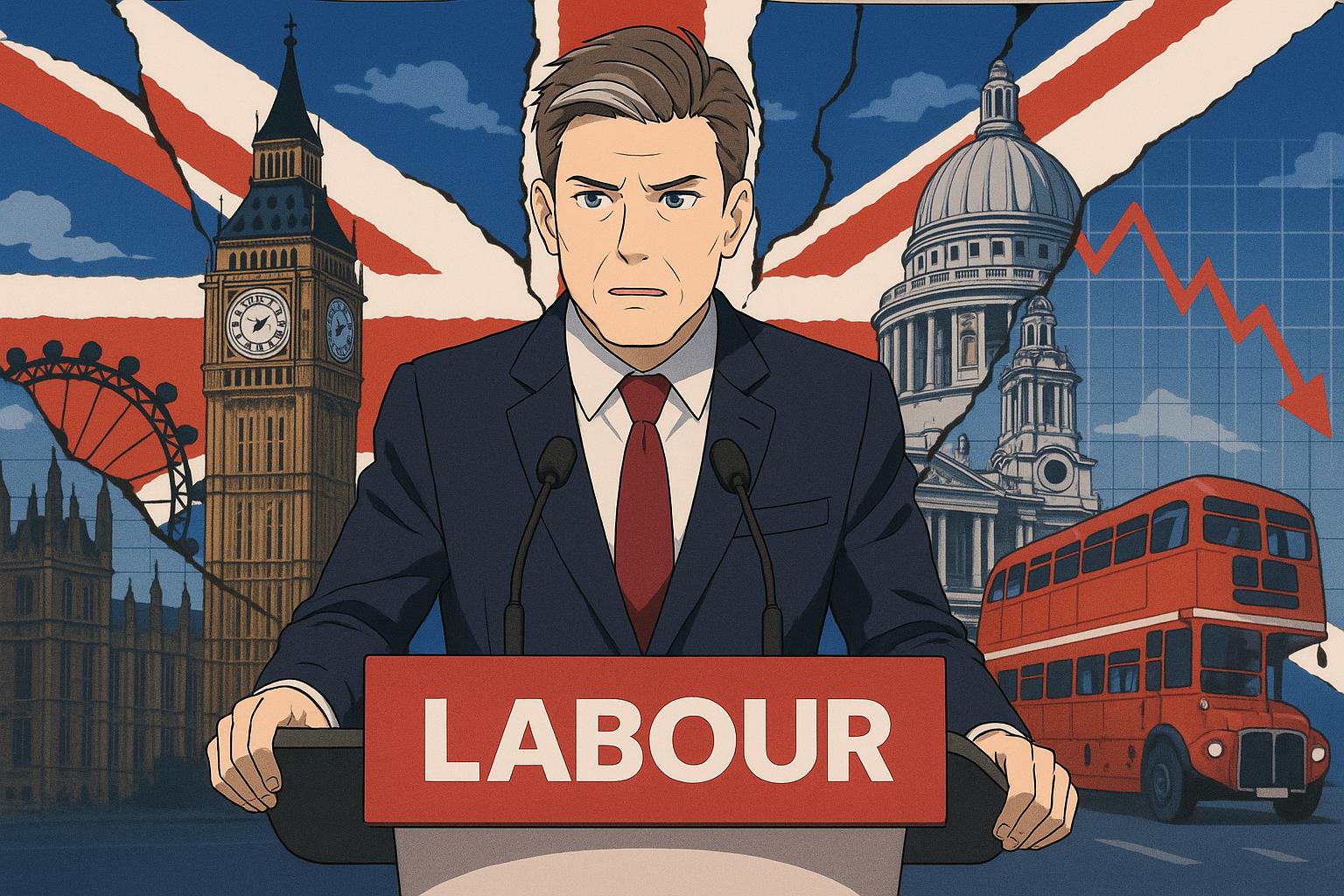In the lead-up to the 2024 general election, the obsession with culture wars has eclipsed substantive political discourse in the UK. From debates over statues to discussions about pronouns and definitions of patriotism, these cultural skirmishes dominate headlines. However, this fixation on identity often distracts from the unravelling of the economic and social fabric under the new Labour government led by Keir Starmer. Beneath the surface-level clashes lurks a detrimental ideological shift that fundamentally threatens the communities historically overlooked by Labour.
The narrative emerging from Labour showcases a party attempting to portray moderation and collaboration, evident in Starmer's carefully orchestrated visit to the White House and his public declarations of working "hand in hand" with businesses. This conciliatory tone, reminiscent of the failed 'Prawn Sandwich Offensive,' is undermined by policies that carry significant repercussions for key demographics. For instance, the recently imposed National Insurance hike, which burdens employers at a time of rising economic anxiety, contrasts sharply with their promise of support for the working class. The Employment Bill looming on the horizon appears poised to stifle small businesses with excessive legal requirements under the guise of protecting workers. Critics argue this is a deliberate smokescreen to present Labour as defenders of rights while effectively punishing enterprise.
Moreover, pensioners—typically a bedrock of Conservative support—are now disillusioned by Labour's fiscal policies. By means-testing the winter fuel allowance, Labour is reshaping the narrative of social responsibility, eroding the trust of older generations who have dutifully contributed to the system. Framed as a reasonable measure in tough economic times, this policy insults the very dignity of those who have built their lives on the promise of stability.
Rural communities now find themselves enduring the ramifications of Labour's evident disregard for the countryside. Policies impacting farmers, including subsidy cuts and changes to inheritance tax, worsen the issues these communities have faced, especially post-Brexit. For many farmers, Labour's approach feels like a rejection of their realities rather than a solution to their challenges. Urban policymakers may dress these decisions up as steps toward environmental sustainability, but for rural constituencies, the message is clear: their way of life is under attack.
Starmer's recent proposals indicate a troubling pivot in Labour's vision for the UK, particularly with a new 'reset' agreement with the European Union aimed at revitalising UK-EU relations. While this move may be framed as necessary for economic revitalisation, it raises alarms about potential compromises to national sovereignty. Predictions of significant economic benefits do not mitigate the risks of alienation from voters who feel sidelined by such compromises.
As public sentiment begins to shift, evidenced by polling indicating lower concern over Brexit, Starmer's challenge is multifaceted. He must navigate the delicate balance between restoring economic ties and appeasing a disillusioned populace wary of mainstream assurances. This strategy not only reflects a bid to reclaim public trust but also highlights pressures from emerging populist movements that threaten Labour's stability.
As Labour traverses these turbulent political waters, Starmer is confronted with a critical dilemma: how to balance the imperative for economic recovery against the risks posed by a centrist rebranding that may alienate traditional supporters. The recent push to reform immigration policies exemplifies this struggle, facing backlash from conservatives demanding stricter regulations and progressives advocating for compassionate reforms. This balancing act encapsulates the larger challenges Labour faces as it seeks to redefine its identity while risking its foundational values.
Ultimately, while the culture wars capture the public's attention, the quiet ideological shift reshaping Labour's agenda threatens to displace those who have historically aligned with the party. The coming years will be pivotal, not only for the policies Labour pursues but also for how it reconciles its past with a future that must navigate a divided electorate and rising opposition.
Source: Noah Wire Services
